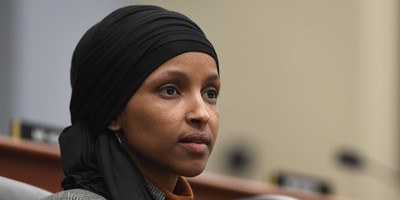"While we were playing footsie debating each other 22 times, they were spending $100 million on technology," Republican National Committee Chairman Reince Priebus said last week, referring to his party's rigorous debate schedule in the 2012 GOP presidential primary season. The last campaign, many Republican insiders said during a recent RNC meeting, had too many debates, the result of which was a GOP arguing with itself while Democrats prepared the way for Barack Obama's victory.
There's no doubt the Republican debates produced many damaging moments for the party. There was Mitt Romney's $10,000 bet offer, which helped cement his image as an out-of-touch rich guy. There were any number of gaffes from Rick Perry, culminating in Perry's painful-to-watch "Oops" moment. There was Michele Bachmann's HPV vaccine blunder. There were bare-knuckle fights over immigration. And there was warfare between Romney and Newt Gingrich, in which Gingrich prevailed in South Carolina only to be flattened by Romney in Florida. By the end, there was a lot of blood on the floor.
Now a panel of GOP veterans appointed by Priebus is studying what changes should be made next time around. They're focusing on three questions: 1) At what point in the campaign should debates begin; 2) How many debates should be held; and 3) Who should conduct them.
The first debate of the 2012 GOP race was originally scheduled for April 2011. It was postponed, and the debates actually started a little later, but many Republicans believe that was still way too early. "With all the demands on candidates, the importance of grassroots campaigning and meeting voters, are you well served by having a debate process begin that early?" asks Ari Fleischer, the former Bush White House spokesman who is part of the RNC group reviewing debate policy.
Many Republicans believe the answer is no; they would like to see no debates until at least fall, before the first caucuses and primaries. (They also hope to see those caucuses and primaries start later than the first week of January, which has been the case in the last two campaigns.)
Recommended
Once the debating starts, how many should there be? "There is a sense that 20 debates might be a tad too many," says Fleischer. Although Fleischer calls debates a "vital part of the process" and says the group seeks to have "a healthy, significant number of debates," some party officials would like to see the number cut in half.
Finally, who conducts the debates? The last time around, some conservatives expressed anger about what they saw as liberal journalists subjecting GOP candidates to hostile questioning. "The Republicans have let this become the reality show of presidential politics," said Katon Dawson, a former chairman of the South Carolina GOP, during that state's primary week in January 2012. "We've let it be driven it by people who don't like us. ... For that hour and a half of earned media, we have let the drive-by shooting of the liberal media come after our Republican candidates unfettered."
Dawson wasn't alone. Many Republicans scratched their heads during a New Hampshire debate in which ABC's George Stephanopoulos, a former Clinton operative, grilled Romney on the topic of contraception. Where did that come from? Later, when Democrats sought to make contraception a campaign issue, Republicans saw Stephanopoulos' questions as a partisan preview of what was to come.
So who should conduct the debates in 2016? "That's a tricky question," says Fleischer. "Putting on a proper live debate is no simple matter, and usually the people who are good at it are the networks or the cables. So it's something we've got to work through and talk through, to figure out how the debates are going to be reflective of what a Republican primary voter thinks." In the end, the party might decide to assign a few debates to organizations that did not conduct them in 2012.
National party officials can't just dictate changes; state parties will have a lot to say about it, too. But the bottom line is that 2016 will likely have fewer Republican debates, starting later, with perhaps some originating outside what Matt Drudge calls ABCCBSNBCFOXCNNMSNBC.
There will still be plenty of fighting. And Republican officials point out that Democrats, too, are likely to have a wide-open race in 2016, with a field that includes some candidates -- remember Al Sharpton and Mike Gravel? -- who won't exactly bring glory to the Democratic Party.
That will be their problem. For Republicans, there is a real determination to avoid the exhausting and rocky road the candidates traveled in 2012.

























Join the conversation as a VIP Member